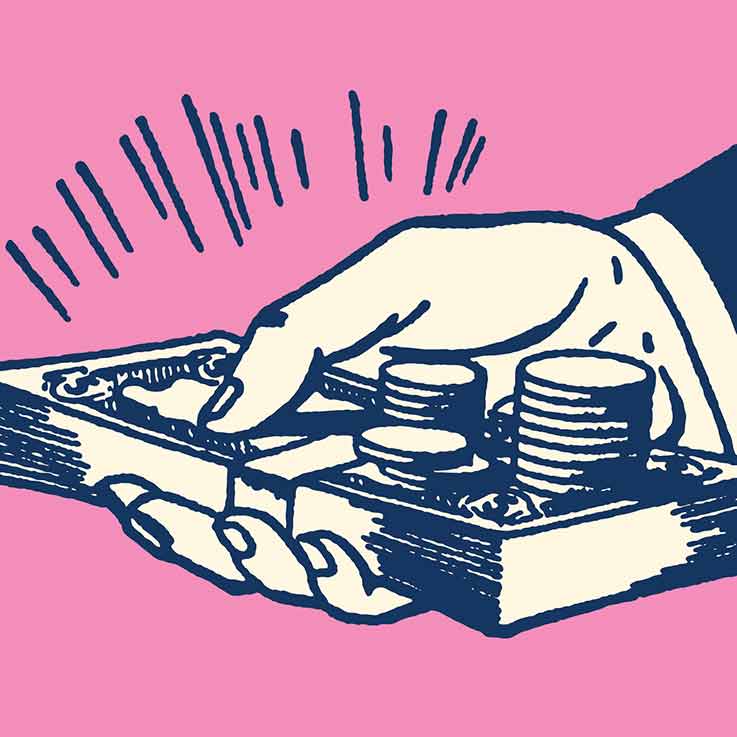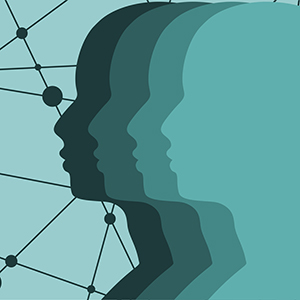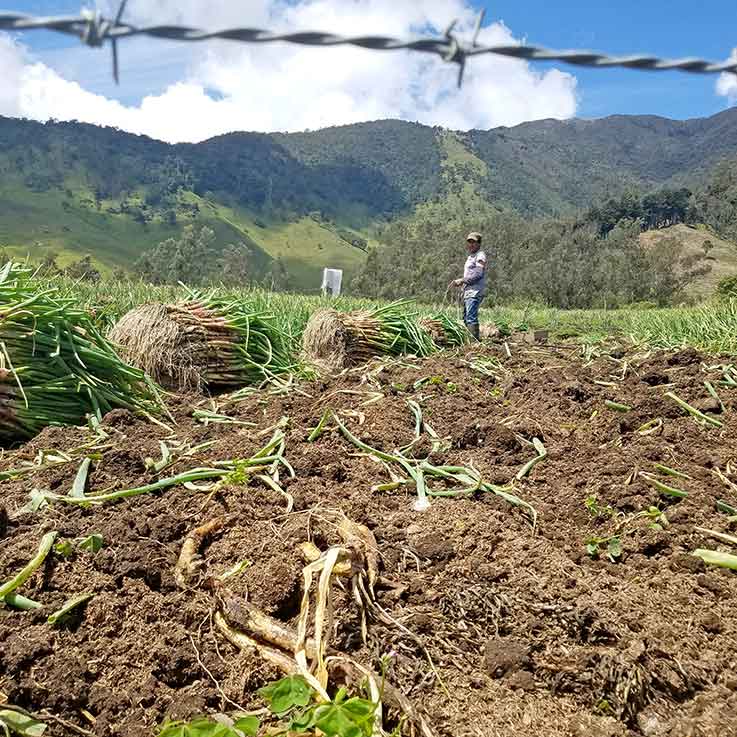
Is Universal Basic Income the Key to Happiness in Asia?
Is Universal Basic Income the Key to Happiness in Asia?
A look at why unconditional income has gained popularity in South Korea and what we can learn from the largest trial in Asia to date.
By Fan Li Jul. 12, 2021
(Illustration by iStock/CSA-Archive)
Recently I joined a discussion organized by a group of Japanese university students about making a career out of what you love to do. The students complained that after graduation, people they once looked up to at school became syachiku—a term that ridicules employees who show strong loyalty to a company at the expense of their private lives.
I worried that advice from the invited speakers—all successful adults—might sound condescending rather than encouraging, and make the already pessimistic students even more depressed. But one student’s words got my attention: Soon, artificial intelligence (AI) will replace unskilled and repetitive jobs. “I dream of a future where everyone can do what they really like,” he said, “and where income can rely on social policies such as a universal basic income (UBI) to provide some security.”
While it might be just a dream, there is no doubt that the rapid development of AI and the technologies it enables—including self-driving vehicles, auto-translation tools, and robot waiters—will replace many jobs in the foreseeable future. Indeed, a study by the McKinsey Global Institute concluded that by 2030, intelligent agents and robots could replace as much as 30 percent of the world’s current human labor force. And while widespread worker reskilling and other jobs initiatives may counter some of these developments, the question remains: How will people without jobs survive?
One increasingly common answer is universal basic income (UBI)—unconditional, regular, monetary income paid to all individuals. UBI has gained global attention, and many countries have begun to experiment with it. But the idea has become particularly popular in South Korea, and a recent trial in Gyeonggi Province—the largest trial in Asia to date—highlights its potential to contribute to a healthier and more resilient society.
Why Is UBI Popular in South Korea?
Much of the credit for UBI’s popularity in South Korea goes to Lee Wonjae, founder of Lab2050, a think tank based in Seoul that aims to design and propose a new social contract for the era of big data and AI. A journalist and economist born in the early 1970s, Wonjae has been promoting social innovation in South Korea, especially the important role welfare and economic policies play in achieving large-scale innovation.
In February 2020, he and Cho Jung-hun, the region’s former World Bank representative, founded a political party called Transition Korea. Aware that the odds of winning a seat in the National Assembly on their own were long, they joined an electoral alliance formed by the mainstream Democratic Party. This gave them a platform to advocate for innovative initiatives such as UBI. Another member of the alliance is the Basic Income Party, a new party represented by young women. Of its 20,000 members, 85 percent are under age 40, and most are jobless and looking for full- or part-time work.
Relying solely on the Internet and social media to campaign during the COVID-19 pandemic, Jeong-hun won a seat in the National Assembly (the national parliament) in 2020. A member of the Basic Income Party, 31-year-old Yong Hye-in, was also elected. “This is a huge victory,” proclaimed Wonjae at a March meeting of the East Asia Social Innovation Study Group, an online study group I established, “because this electoral coalition stands for three things: digital transformation, UBI, and social innovation.” In 2021, both the ruling Democratic Party and the People Power Party favor UBI policy, and it will be a topic of discussion in the 2022 presidential election.
This success is a head-scratcher. South Korea is an East Asian country deeply influenced by Confucianism, which teaches that every individual must work and earn their own keep. South Koreans have therefore traditionally viewed the idea of relying on the efforts of others as shameful; there is a philosophical objection to “a free lunch.” How, then, did the idea of unconditional income become popular?
A lot of it has to do with the yawning gap between rich and poor in South Korean society, and the solidification of social classes in recent years. The Oscar-winning movie Parasite is an illustration of this phenomenon. It tells the story of a family that lives in a damp, dark semi-basement and can only hope to improve their fortunes by faking job qualifications and forging academic degrees.
This gap is also reflected in the “spoon class theory,” which has been popular in South Korea since 2015. The theory categorizes young people between 20 and 39 into one of six classes based on assets and income. The “gold spoon” class refers to rich, second-generation individuals worth at least 2 billion won (about $1.76 million), and accounts for just 1 percent of the South Korean population. At the other end is the “dirt spoon” class with an annual income below 20 million won (about $17,600). In a 2019 survey, more than 75 percent of respondents believed that parents’ connections and wealth were essential to the success of their children.
Wonjae has warned that the country’s inequality is reinforcing itself. “Profitable companies in Korea are not creating jobs, while unprofitable companies are providing jobs,” he explained at the study group gathering. “Over the past 30 years … Korea's manufacturing sector has continued to grow, and the wealth of large corporations has multiplied, but total employment has barely increased, and most of the increase has been in precarious, low-paid jobs. This is the reality of Korea today.”
Self-employed people—many of whom perform odd jobs created by the platform economy, such as food delivery and coding—make up 25.1 percent of the South Korean workforce. In the absence of a traditional employment relationship, these individuals lack social security, largely because of the conditions attached to South Korea's social security system. To receive unemployment insurance, for example, a person must have had a job and lost it. This means that young people who have not found a job since college graduation do not qualify, and in fact, one out of every 10 people under 30 in South Korea is unemployed.
Wonjae and his colleagues at Lab2050 believe that universal basic income can help solve this problem, and it is with young people that a new UBI experiment in South Korea began.
The Largest UBI Trial in Asia
With 12 million residents, Gyeonggi Province surrounds the nation’s capital of Seoul and is the most populous province in South Korea. In 2018, Governor Lee Jae-myung started a youth basic income program with the goal of helping all 24-year-olds in the region figure out how they can contribute to society. At 24, most young South Koreans graduate from university and begin looking for employment. However, many need to take additional courses or internships to develop the skills or qualifications they need to get a job.
There are 175,000 24-year-olds in Gyeonggi, and for one year, each receives the equivalent of $220 in a locally negotiable currency per quarter via a credit card. Although the amount is small, the program is popular with young people and local businesses. Some young people said the money made them determined to quit their temporary job so that they could have more time to focus on self-improvement. Local small- and medium-size businesses have meanwhile seen a surge in sales, as young people can use the currency only within the province and not at international chains like McDonald's. In addition, a Gyeonggi Research Institute analysis concluded that the willingness to work among UBI beneficiaries has not waned as some had feared, and that recipients are happier.
According to Wonjae, young people living in Seoul can also receive a one-time job-hunting subsidy equivalent to $2,500, and during the COVID-19 outbreak, the government gave each family a one-time subsidy equivalent to $800. Although these measures are not properly considered UBI, there is momentum behind unconditional income. A poll last year showed that UBI has gained the support of nearly half the South Korean population, and Lee Jae-myung, now one of the leading candidates in the 2022 presidential election, says he wants every South Korean to receive a basic income equivalent to 500,000 won (about $430) every year. He aims to start small and gradually increase the figure to 500,000 won by bolstering taxes on land, carbon dioxide emissions from burning fossil fuels, and digital services.
Broader Arguments for (and Against) UBI
Of course, several countries in Europe, North America, Africa, and Asia began smaller-scale, limited-duration experiments after the 2008 financial crisis, long before South Korea's trial. In 2019, US Presidential candidate Andrew Yang campaigned on a plan that would provide UBI to every American adult. By consolidating welfare programs and implementing a value-added tax on big companies, the government would pay individuals $1,000 a month. Yang’s candidacy failed, but it did lead to broader discussion of UBI.
Among supporters, UBI has at least three major advantages:
- It would free some people from simply working for a living, and allow them to study or start a business that better fulfills their potential. “Instead of forcing yourself to do work you don't like, you should do something that feels more valuable to you,” explained Shin Ji-hye, the 33-year-old head of the Basic Income Party, in an interview with Pengpai Media (Xiaoyu, 2021). “In an era where there is not so much need for labor, someone needs to work on how to give more people the chance to find value in life.” Other leaders have noted UBIs promise as well, including tech-company founders Mark Zuckerberg and Elon Musk.
- A well-designed UBI can avoid the so-called “welfare trap” of existing social security schemes. Many of today’s welfare systems have strings attached. For example, a requirement that a person’s income fall below a specified amount before they can qualify for a benefit means that beneficiaries must maintain a low-income status. When the financial difference between a social benefit and earnings from work is not significant, beneficiaries weigh the pros and cons, and often decide to not work. Because UBI is an unconditional cash benefit and does not conflict with other income, beneficiaries don’t have to make a choice; they can benefit from UBI and work at the same time.
- Existing benefit systems and approval processes are costly to administer, and can become a breeding ground for bureaucratic inefficiency and corruption. Because UBI targets the entire population—rather than assessing widely varying individual circumstances—it can significantly reduce administrative processes and thus government spending.
Opposition to and skepticism about UBI, on the other hand, tends to focus on three points: 1) the idea that it will discourage people from working and lead to economic collapse, 2) the difficulty in defining a reasonable income amount, and 3) the likelihood that, even after implementation, UBI would not reduce the existing welfare system and would increase public expenditure by spending money at both ends.
A Path to Greater Happiness?
Because questions about UBI have focused on whether it will discourage people's willingness to work, trials have done the same. One of the most visible experiments was a two-year program the Finnish government started in January 2017.
Finland is a high-tax, high-benefit society. Yet despite repeatedly topping the Global Happiness Index, the country’s unemployment rate is high. In 2017, it was 8.6 percent, and the average annual income of a newly employed worker was €9,920 (about $11,210). The average annual unemployment benefit was meanwhile €7,268 (about $8,216)—an amount that, when added to other social benefits, sometimes exceeded income from work. With the aim of reducing the unemployment rate, the Finnish government randomly selected 2,000 unemployed people aged 25-58 from across the country as UBI beneficiaries, and about 170,000 unemployed people as a control group for comparison. Over a two-year period, each person in the experimental group received a monthly UBI payment of €560 (about $633) that did not impact their employment status.
The results were mixed. The employment rate of UBI beneficiaries in the first year was around 18 percent—about the same as in the reference group. The employment rate in the second year was 27 percent, though there was still a negligible difference compared to the reference group. However, while the employment situation of beneficiaries did not improve significantly, the survey showed that their subjective well-being did improve significantly, and they felt more confident about themselves.
Some UBI researchers have criticized the experiment’s design, blaming the inconclusive results on a small budget and political pressure to implement it in haste. Wonjae, however, looks at the results differently. He explained at the study group meeting: “If the purpose of this experiment in Finland is not to see if employment has increased, but if people are happier, then it can be said to be a success.” And indeed, the UBI trial in South Korea reached the same conclusion.
UBI: A Tool for Social Resilience
A sudden pandemic swept the world in 2020. Facing economic crises and out-of-control unemployment, many countries gave a one-time subsidy to their entire population. People used the money in myriad ways. In Japan (where I live), the central government gave 100,000 yen (about $1,000) to all residents, regardless of age, nationality, and income status. Media surveys show that this money helped ease the distress of many individuals and families. Some wealthy families voluntarily gave up the opportunity to take the money. Others took the money, and then donated it to families or charities.
“Korea is facing a huge crisis right now, and this is a moment when it can be turned around,” concluded Wonjae at the study group session. Lab2050 has proposed a new social security model with UBI at its core. Called Freecurity (freedom plus security), the model guarantees a livelihood without the condition of full-time labor. “Freedom and security cannot be achieved without one another. Imagine a future where the government directly provides individuals with economic security that brings a sense of security. People in Korea no longer need to have a full-time job to support their families, but can happily start their own businesses and innovate with a sense of responsibility to society. I believe that universal basic income is not just a distribution scheme, but a vision of our ideal future to be explored by all members of society.”










